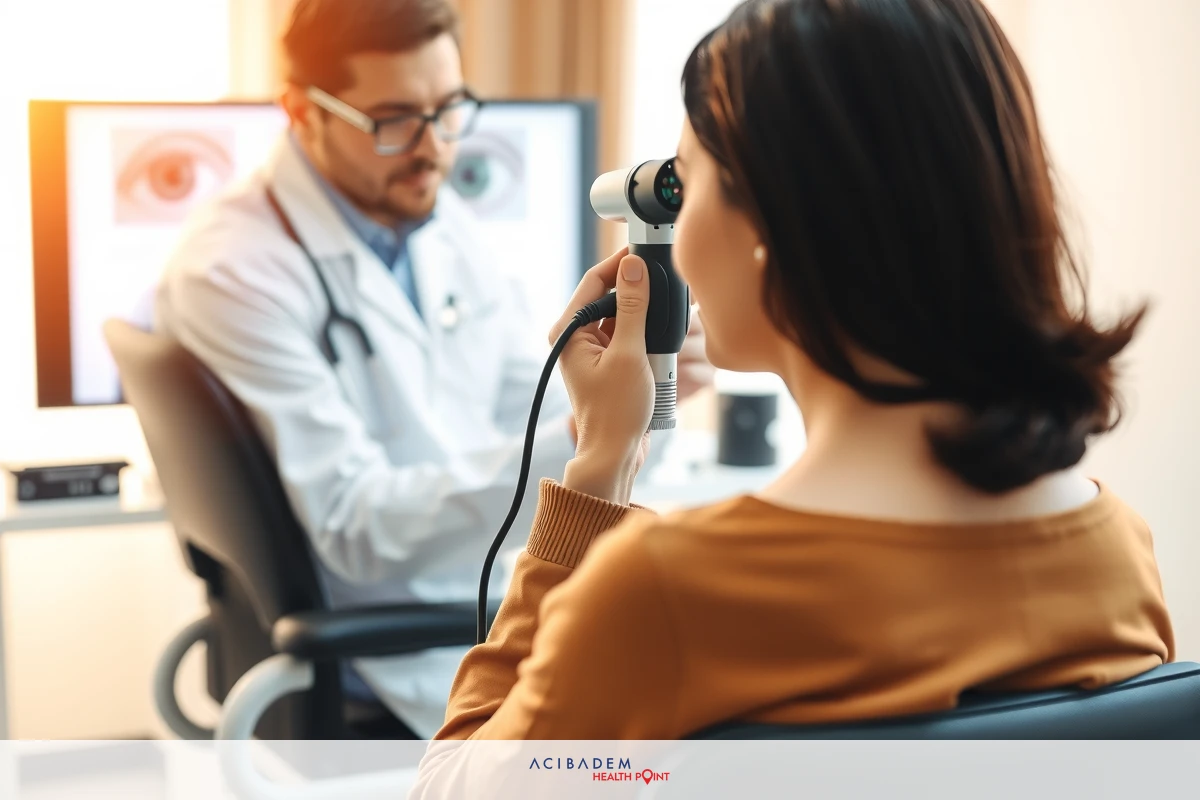Who Cannot Have Laser Eye Surgery
Who Cannot Have Laser Eye Surgery Laser eye surgery, a compelling option for vision correction, is not suitable for everyone. Some individuals may find themselves ineligible due to certain underlying medical conditions – these can create complications that make the procedure unsafe. It’s also worth noting that age and stability of prescription play crucial roles in determining who can safely undergo this treatment.
On another note, your overall eye health and corneal thickness are factors that impact eligibility for laser eye surgery. A healthy pair of eyes with adequate corneal thickness contributes significantly to post-surgery recovery and success. Therefore, potential candidates must be thoroughly evaluated to ensure they meet these standards before proceeding with the operation.
Underlying Medical Conditions
An array of underlying medical conditions can potentially cast a shadow on the feasibility of laser eye surgery. For instance, autoimmune diseases such as lupus or rheumatoid arthritis could pose significant risks for candidates due to their capacity to affect healing post-surgery. These contraindications are not only limited to systemic diseases but extend to ocular conditions like glaucoma and keratoconus which directly impact the eye structure – a vital consideration in laser surgeries.
Moreover, individuals diagnosed with severe dry eyes may find themselves ineligible for this kind of intervention. Laser eye surgery could exacerbate these symptoms because it often involves cutting nerves in the cornea that facilitate tear production – an essential process for maintaining healthy, lubricated eyes. Additionally, those living with diabetes must tread carefully; fluctuating blood sugar levels can impinge upon vision stability making them less suitable candidates.
Outside of these explicit medical contraindications exists another domain encompassing lifestyle factors and general health status. Candidates who are pregnant or nursing should delay plans for laser eye surgery due to hormonal fluctuations that might alter their refractive error. Habitual smokers too might face eligibility challenges because smoking impedes oxygen flow needed for successful recovery post-operation. As we navigate through these complexities surrounding qualifications for laser eye surgery, one thing becomes abundantly clear: thorough preoperative assessment is paramount. It ensures all potential complications are weighed against benefits before any commitment is made towards this life-altering procedure.
Age and Stability of Prescription
When considering laser eye surgery, age emerges as a central determinant. Primarily, patients need to be at least 18 years old. The rationale behind this criterion lies in the fact that vision can often change significantly during adolescence, making surgical intervention premature and potentially ineffective for those below this threshold.
Reaching legal adulthood does not automatically qualify one for laser eye surgery. Professionals within the field typically seek assurance that the patient’s vision has remained stable for a minimum of one year prior to surgery. This stability is closely linked with maturity; as individuals grow older their eyes tend to evolve less drastically resulting in more predictable outcomes post-surgery.
Another crucial element tied up with age is presbyopia – an inevitable aspect of aging where the lens becomes less flexible leading to difficulty focusing on close objects. As much as laser eye surgery corrects distance vision effectively, it cannot halt or reverse presbyopia progression implying that even after successful treatment some patients may still require reading glasses.
The concept of prescription stability brings us into another dimension concerning eligibility for laser eye surgery: refractive error degree. Patients with severe myopia (nearsightedness), hypermetropia (farsightedness), or astigmatism might find themselves outside the range treatable by current technology thus deeming them ineligible candidates.

Prescription stability also reflects how well controlled certain systemic diseases like diabetes are – an unstable prescription could indicate fluctuating blood sugars which makes surgical intervention risky due to unpredictable healing patterns post-operation.
While these factors paint a detailed picture about qualifications needed for laser eye surgery, they further underscore how critical comprehensive evaluation is before undertaking such procedures – ensuring optimal results while simultaneously mitigating potential risks associated with individual characteristics such as age and prescription status.
Eye Health and Corneal Thickness
In the realm of laser eye surgery, the health of one’s eyes emerges as a paramount factor on the road to qualification. This is not just about having an optimal vision prescription; it delves deeper into aspects such as corneal thickness and overall ocular health. A key component in this context is healthy retinas – retina related disorders can pose significant challenges during recovery or even lead to complications post-surgery.
Additionally, patients with chronic ailments like blepharitis (inflamed eyelids), conjunctivitis (pink eye) or other recurring infections are often discouraged from undertaking laser surgeries due to increased risk of infection post-procedure. Those suffering from severe dry eyes fall under this category too; since laser procedures frequently exacerbate these symptoms, candidates must have their condition adequately managed before considering such interventions.
Moving beyond general health concerns brings us face-to-face with a more specific metric: corneal thickness. The process behind most types of laser eye surgery involves reshaping the cornea which requires enough tissue for safe manipulation and proper healing thereafter. Therefore, those with thinner than average corneas might be considered ineligible for certain procedures based on safety considerations along with potential risks involved.
There exists a direct relationship between corneal thickness and degree of refractive error that can be treated: thicker corneas generally allow correction of higher degrees of myopia or hypermetropia while thinner ones limit how much adjustment can be safely made – another vital factor determining candidacy for these operations.
The conversation around eligibility doesn’t end here though – those who meet all criteria still need to maintain good overall health plus demonstrate realistic expectations about surgical outcomes ensuring they’re fully prepared both physically and mentally for what lies ahead in their journey towards clearer vision via laser eye surgery.
Frequently Asked Questions
What are the main types of laser eye surgery?
The three primary types of laser eye surgery include LASIK (Laser-Assisted In Situ Keratomileusis), PRK (Photorefractive Keratectomy), and LASEK (Laser Assisted Sub-Epithelial Keratectomy). Each has its unique advantages, risks, and recovery times.
Can anyone undergo laser eye surgery?
No. Certain factors such as age, overall health, stability of prescription, corneal thickness and presence of specific medical conditions can affect one's eligibility for this procedure.
Is the procedure painful?
Most patients do not experience significant pain during laser eye surgery. Numbing drops are used to minimize discomfort during the operation. Post-surgery, some individuals might experience temporary discomfort or mild burning sensation which usually subsides within a few days.
How long does it take to recover from laser eye surgery?
Recovery time varies among different procedures and individuals. While some may notice improved vision immediately post-operation others might need several weeks for their sight to stabilize fully.
These answers serve informational purposes only; they should not be construed as medical advice.








